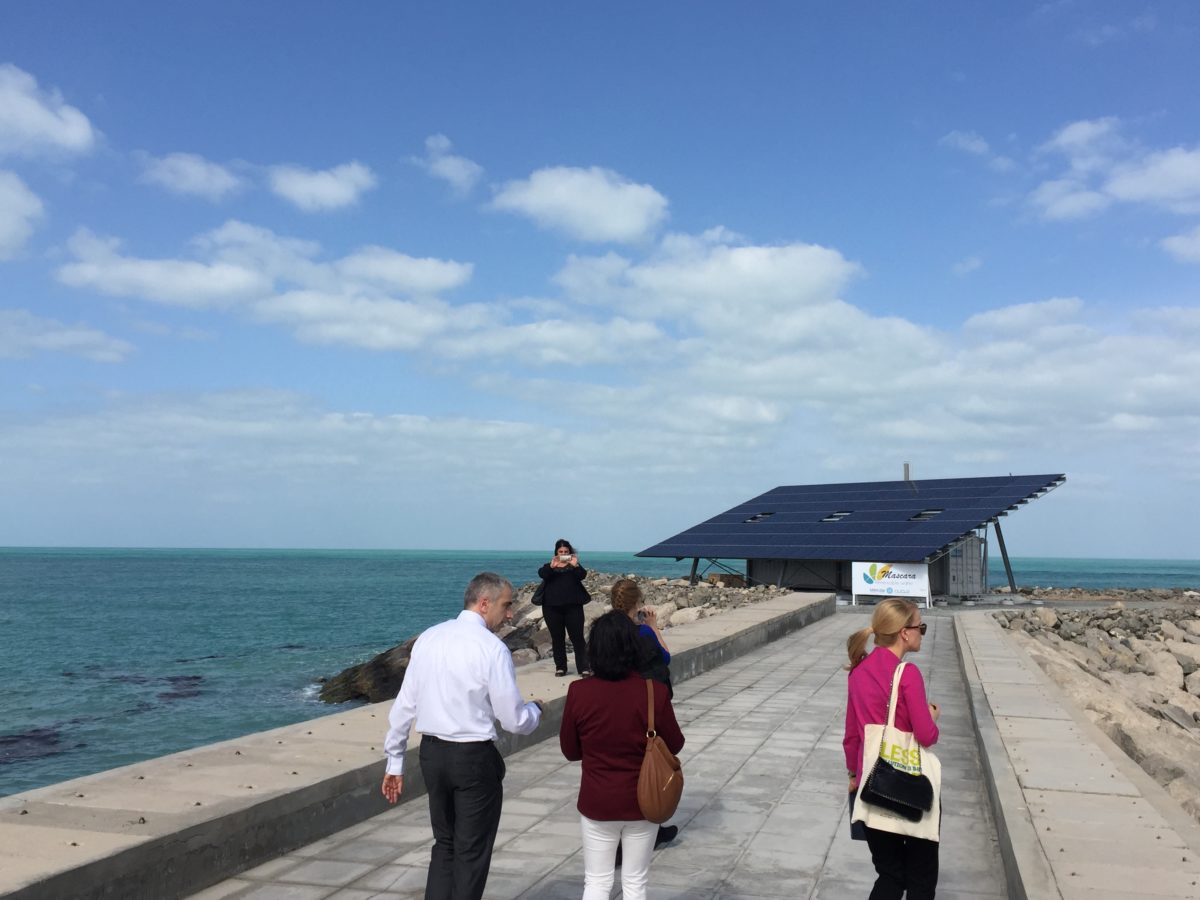The water desalination plant in Ghantoot, Abu Dhabi is a cluster of five innovative pilot projects that aim to test new technology configurations and bring them to the market.
The plant is owned by Masdar, Abu Dhabi's state-owned company that aims to foster renewable energy technology in the country of United Arab Emirates and the Gulf region.
The latest pilot project added to the cluster of the water desalination plants in Ghantoot uses electricity generated by a 30 KW off-grid solar PV system.
The new configuration was developed by French start-up Mascara Nouvelles Technologies and aims to utilise solar energy to power the desalination process.
This is important because 50% of a desalination plant's lifetime costs come from energy consumption, said a Masdar spokesperson.
Of course, apart from on-site renewable energy generation, another way to reduce power consumption is through innovations in desalination technology. This is why Masdar is testing different technologies in the Ghantoot cluster.
Nevertheless, Mascara's innovation is another forefront for the PV sector. The facility works off the grid, which makes it ideal for small, remote communities too.
Currently, the Mascara facility in Abu Dhabi stops operating at night, when there is no solar radiation. There are plans to connect it to the grid, so that operation can continue into the night.
Popular content
More solar plans
Alexander Ritschel, head of technology at Masdar, told pv magazine that the Ghantoot cluster will also install three solar thermal collector systems. These will be used to produce heat, since many desalination plants consume heat.
However, Ritschel added, PV also makes sense because desalination plants use electricity as well, and photovoltaics are very useful.
We have no plans to install more PV at the Ghantoot site because this is only a complex for pilot plants, said Ritschel. However, what we aim for is better understanding of how to integrate PV systems at desalination plants, so that the future desalination process is green, Ritschel concluded.
pv magazine has learned that First Solar will publish a white paper next week asking for the MENA region to adopt solar PV via applications such as water desalination projects. The paper's author is Ahmed S. Nada, the company's Vice President and Regional Executive for the Middle East.
The problem currently is that PV generation for water desalination plants in the Gulf region will struggle to compete with electricity prices from the grid as long as fossil-fuel electricity generation is heavily subsidised. If the Gulf states remove the fuel subsidies, PV would be an obvious choice.
This content is protected by copyright and may not be reused. If you want to cooperate with us and would like to reuse some of our content, please contact: editors@pv-magazine.com.


3 comments
By submitting this form you agree to pv magazine using your data for the purposes of publishing your comment.
Your personal data will only be disclosed or otherwise transmitted to third parties for the purposes of spam filtering or if this is necessary for technical maintenance of the website. Any other transfer to third parties will not take place unless this is justified on the basis of applicable data protection regulations or if pv magazine is legally obliged to do so.
You may revoke this consent at any time with effect for the future, in which case your personal data will be deleted immediately. Otherwise, your data will be deleted if pv magazine has processed your request or the purpose of data storage is fulfilled.
Further information on data privacy can be found in our Data Protection Policy.